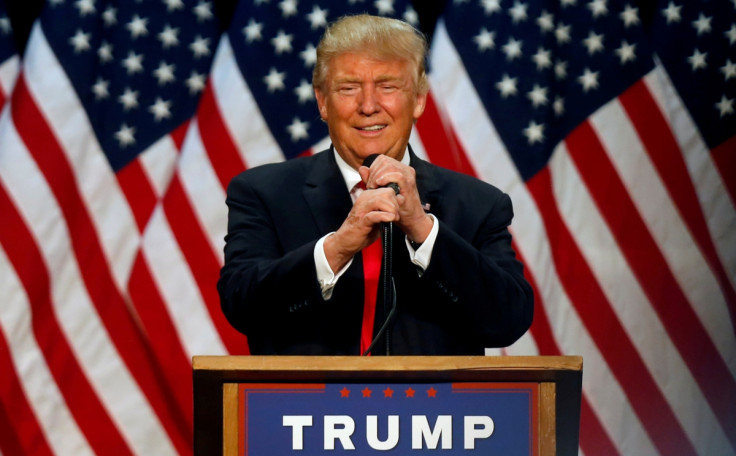Donald Trump cost the US millions in taxes in questionable 'loan' deal, report claims

Presumptive GOP presidential contender Donald Trump has reportedly cost the US government tens of millions of dollars in taxes through a link to a questionable deal to rebrand an investment as a "loan."
The billionaire real estate mogul allegedly approved a $50m (£34m) investment in the Bayrock Group development company — but soon afterwards it was rewritten as a loan, designed to avoid paying millions in taxes, the Telegraph reported in an exclusive investigation on Wednesday (25 May).
A lawsuit against Bayrock over the deal was later launched by former employees of the company, claiming the switch was a fraudulent strategy to avoid paying $20 million in taxes on equity income, plus an anticipated $80 million in anticipated real estate profits.
In an interview with the Telegraph, attorney Jack Blum, chairman of the non-profit Tax Justice Network, called Trump a "poster child" for tax avoidance property schemes, which ultimately harm the middle-income American – Trump's key support base.
The candidate has come under blistering criticism recently for refusing to release his tax returns which reveal his income and tax rate, which is done as a matter of course by presidential candidates. Trump has boasted that he pays as "little tax as possible."
The deal, examined by the newspaper, allegedly involved Trump's business alliance with the Bayrock Group, which was building Trump SoHo in lower Manhattan and two other projects to which Trump had licensed his name.
According to the report, Bayrock struck a deal in 2007 with the Icelandic company FL Group, which agreed to invest $50m in four of Bayrock's subsidiary partnerships. The deal was later allegedly re-labeled as a loan to avoid taxes in a strategy Trump signed his name to.
The suit against Bayrock claims the money was not a loan, but amounted to a "disguised" sale of partnership rights to FL Group, which later went bankrupt in the Iceland banking crisis of 2008. Such a sale would have racked up a $20 million tax liability, according to the suit. The deal also aimed to skirt millions in taxes on projected real estate profits, said the court action, which did not materialise.
Independent experts reportedly told the Telegraph that documents appear to indicate that the money did represent an equity investment disguised as a loan in order to avoid tax payments.
"Converting the original equity into debt improved their 'tax position' dramatically," said Howard Abrams, professor of law and tax expert at the University of San Diego.
"However they have changed the labels, they didn't really change the economics at all. It's not a loan; it's really equity. I don't think they would survive a challenge" from Internal Revenue Service, he added.
When the newspaper confronted Trump's lawyer with a letter outlining the loan re-branding, signed by the GOP candidate, attorney Alan Garten claimed that his client "had nothing to do with that transaction" and by signing the letter was simply acknowledging the deal as a "limited partner". "He was not signing off on the deal," said Garten.
The tax implications of the deal were not relevant to Trump because he was not a "party" to the transaction, Garten insisted. "Our interests are protecting our rights," he added.
But the Telegraph also reported that Trump was Bayrock's "star partner," and that it was written into the agreement between Bayrock and FL that his consent would be needed for the deal to go ahead. Trump, at the time, owned a 15% percent share of Trump Soho, which was being built by Bayrock.
Bayrock has called the lawsuit over the deal "baseless," and said the company's books passed an IRS audit, though it provided no documentation that such an audit had been conducted, the Telegraph reported.
IBTimes UK was unable to independently verify the claims made against Trump.
© Copyright IBTimes 2025. All rights reserved.






















